Behavioral Psychology Posts on Crowch
October unites millions of people across the world. When we see the pink ribbon, we know it is not just a symbol — it is a story of struggle, hope, and faith.
Breast cancer is a diagnosis that may sound frightening and unexpected. But behind every diagnosis stands a person who continues to live, to dream, and to fight. Many women go through incredibly difficult challenges while holding on to their remarkable inner strength. Their stories inspire others — proving that even in the darkest times, there is always light to be found.
Why does this month matter so much?
- It reminds us that early detection saves lives. Simple self-exams and regular doctor visits can be life-changing.
- It highlights the need for support. Care from friends, family, and communities helps ensure that no one faces the journey alone.
- It represents solidarity. Wearing the pink ribbon may seem like a small act, but it carries powerful meaning.
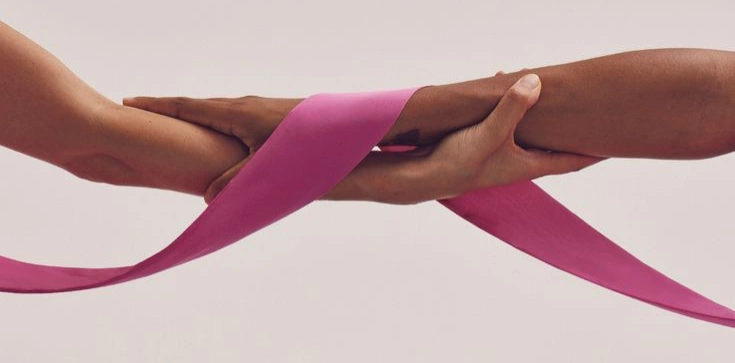
Breast Cancer Awareness Month is not only about illness — it is about strength. The strength of those who are fighting. The dedication of doctors and nurses who work tirelessly for their patients. The love and resilience of families and friends who stand as a pillar of hope.
Each of us can take a step forward: reminding loved ones about prevention, sharing helpful information, supporting a charity, or simply offering words of encouragement. Even the smallest act can save a life.
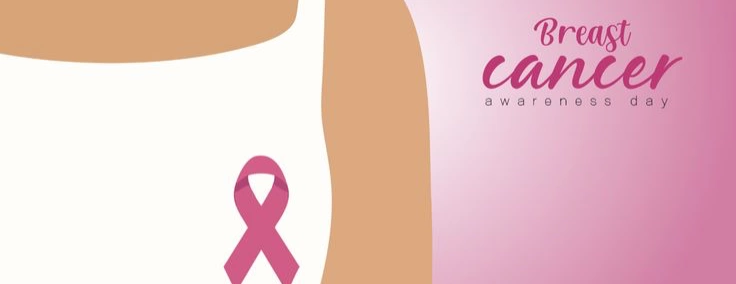
October in pink is a symbol of a future where knowledge, care, and unity are stronger than fear. It is a time to speak loudly, to inspire one another, and to remember: together, we can do more.
Every October, millions of people around the world unite to talk about an important topic — the fight against breast cancer. This month is not just a symbol of the pink ribbon, but a reminder of the value of life, self-care, and supporting one another.
Breast cancer remains the most common type of cancer among women. Statistics show that one in eight women may face this diagnosis during her lifetime. But it is important to remember: early detection saves lives. Regular medical checkups, self-examination, and being attentive to your own body help identify changes at the earliest stages, when the chances of successful treatment are highest.
Breast Cancer Awareness Month carries several key goals:✨ To inform — reminding women and men (yes, men can also develop breast cancer) that prevention and knowledge can save lives.✨ To support — providing emotional, psychological, and material assistance to those undergoing treatment or who have already overcome the disease.✨ To unite — families, communities, organizations, and even entire nations in the fight against fear and in breaking down myths surrounding the illness.
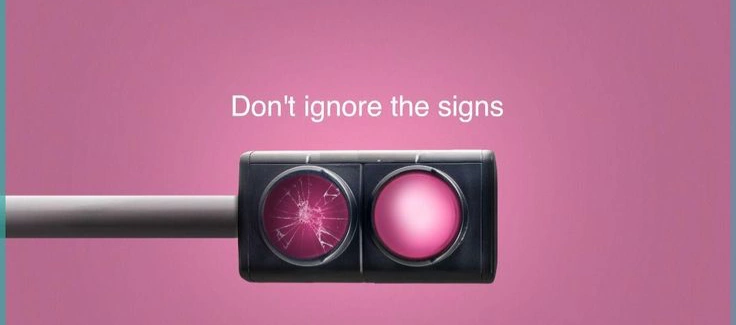
💗 This month is about strength. The strength of women who go through treatment every day and refuse to give up. The strength of doctors and nurses who dedicate themselves to helping their patients. The strength of family and friends who inspire hope and courage.
We wear the pink ribbon, participate in charity runs, and spread information on social media not for the symbol itself, but for life. Every word of encouragement, every small act of awareness can save someone’s mother, sister, friend, or colleague.
It is important to remember: taking care of yourself is not selfishness, it is responsibility. Schedule a medical exam, remind your loved ones to do the same, share helpful information. A small action today can become a great salvation tomorrow.
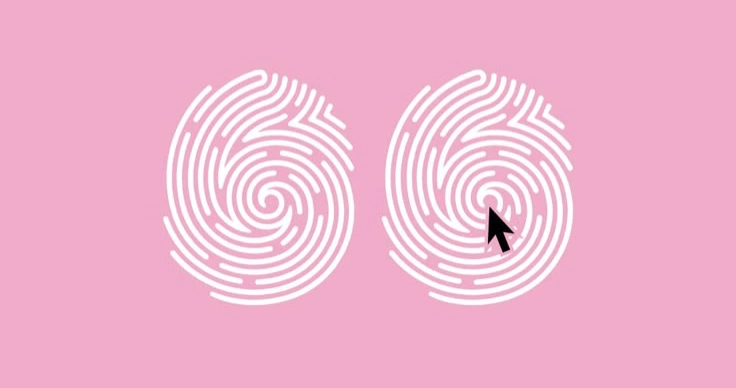
Breast Cancer Awareness Month is a time to talk about health openly, without embarrassment or fear. It is a time to come together for a future where the words “breast cancer” will no longer sound like a sentence.
Let the pink ribbon be a symbol of hope, support, and strength. Let it remind us that each of us can contribute to the fight for life.
Every year on October 10th, the world marks World Mental Health Day, a time to recognize the importance of mental well-being and the need for open dialogue around it. Since its inception in 1992 by the World Federation for Mental Health, this day has grown into a global movement, encouraging people to share their experiences, challenge stigma, and advocate for better care.
The Power of Personal Stories
Mental health struggles can often feel isolating, but when people share their journeys, they remind others that they are not alone. A young student talking about their battle with anxiety, a parent describing the challenges of postpartum depression, or a professional opening up about burnout — each story chips away at the walls of silence. These voices create a ripple effect, giving courage to those who are still afraid to speak.
Understanding the Everyday Impact
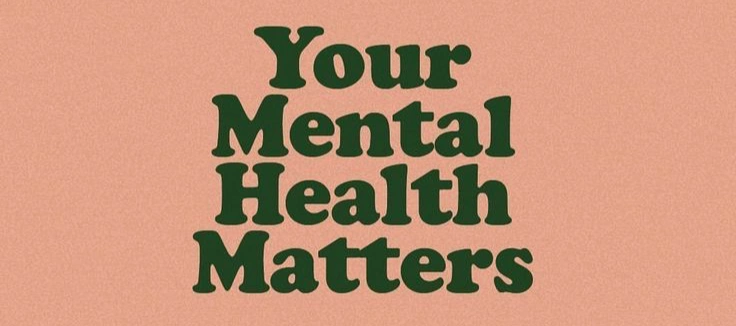
Mental health is not just about diagnosed conditions; it’s about how we handle stress, adapt to change, and relate to others. A bad week at work, grief after loss, or the stress of uncertainty — these experiences affect everyone, and acknowledging them is the first step toward healing.
Breaking Stigma through Awareness
Stigma thrives in silence. For too long, mental health issues have been whispered about or ignored altogether. World Mental Health Day transforms that silence into conversation — in classrooms, workplaces, and communities. Education campaigns, public talks, and social media initiatives on this day aim to replace judgment with understanding.
Practical Ways to Support Mental Health
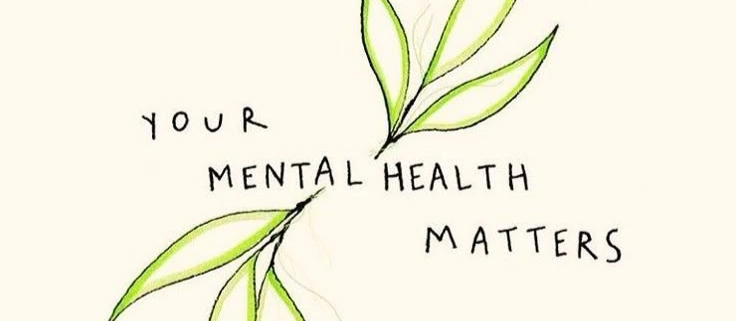
- For Yourself: Set boundaries, practice self-compassion, and prioritize rest.
- For Others: Be a patient listener, avoid dismissive comments, and check in regularly.
- In the Community: Support local mental health initiatives, volunteer, or advocate for accessible services.
The Role of Global Collaboration
Access to mental health care remains unequal across the world. While some have therapists, hotlines, and support networks, others lack even the most basic services. Governments, NGOs, and private sectors must work together to expand access and integrate mental health into public health policies.
The Heart of the Day
At its core, World Mental Health Day is about humanity — the shared understanding that everyone’s mind matters. It’s a reminder to look inward, care for ourselves, and extend empathy outward to others.
On October 10th, let’s move beyond awareness toward action. By speaking openly, supporting each other, and demanding better care, we can build a future where mental health is valued, protected, and nurtured for all.
🧠 Fear vs. Anxiety: What’s the Difference?
Fear and anxiety might feel similar, but they serve different emotional roles. Fear is our reaction to a visible threat — a barking dog, a looming deadline, or an unexpected sound in the dark. Anxiety, on the other hand, is the unease about something that might happen in the future. It's the voice in your head that whispers, “What if...?” — even when nothing seems wrong on the surface.

This emotion isn't a flaw — it's an evolutionary advantage. Our ancestors who noticed rustling bushes and imagined danger (even when there was none) were more likely to survive sabretooth attacks than their carefree companions. Those who worried lived longer. But today, that once-useful reflex can spiral out of control.
📊 How Common Is It?
You’re not alone. Statistically, 1 in 3 people will experience significant anxiety at some point in their lives. And when we broaden the definition to include everyday anxiety — that gnawing unease before a big presentation or the sleepless night before an exam — the numbers likely approach 100%.
The real issue isn’t whether you feel anxious. It’s whether your anxiety is helping you adapt or just holding you back.
⚖️ When Anxiety Becomes a Problem
Anxiety, like any emotion, is only problematic when it stops serving a useful purpose. Let’s say you’re working on an important project. A bit of anxiety might push you to work harder, double-check your work, or prepare more thoroughly. That's adaptive anxiety — uncomfortable, but beneficial. But if your worry becomes so intense that you’re paralyzed, procrastinating, or physically unwell? That’s when it crosses the line into maladaptive or even clinical anxiety.
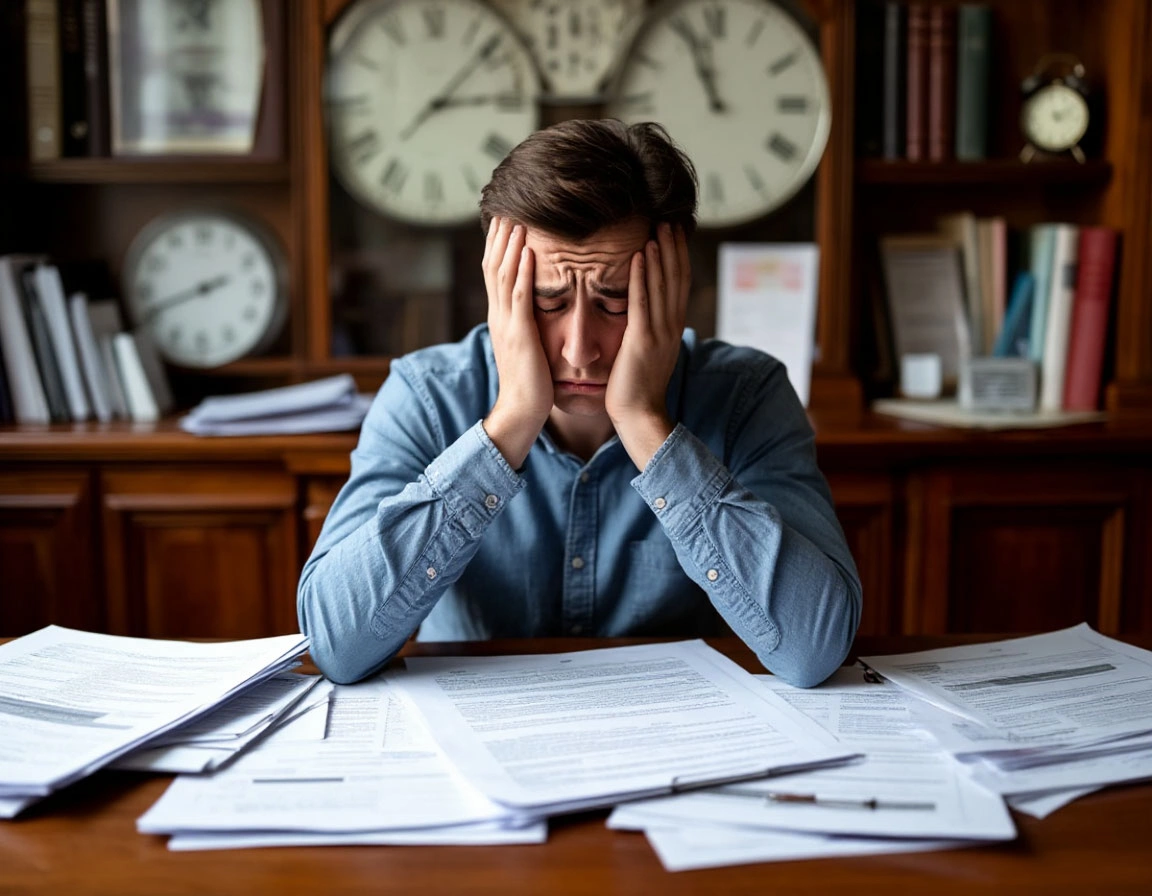
🔍 Why Are Some People More Anxious Than Others?
There’s no single answer — anxiety is influenced by a mix of biology, psychology, and life experiences.
- Women are twice as likely to experience anxiety disorders. Hormonal fluctuations, especially involving the thyroid or adrenal glands, may play a role.
- Childhood trauma, unresolved stress, or emotional neglect can shape how we respond to life’s challenges.
- Even genetics contribute: some people are simply wired to react more sensitively to stress.
But the good news? You don’t have to know the exact cause to start healing.
🛠️ How to Manage Anxiety
Whether your anxiety is mild or overwhelming, there are practical strategies to regain balance:
🧘♀️ 1. Breathing Exercises
Try the 4-7-8 method: inhale for 4 seconds, hold for 7, exhale for 8. Do this 4–5 times. It slows your heart rate and calms your nervous system.
🧘 2. Mindfulness & Meditation
Just 5–10 minutes daily can make a difference. Use apps like Headspace or Calm to guide your practice. Focus on the now, not the what if.
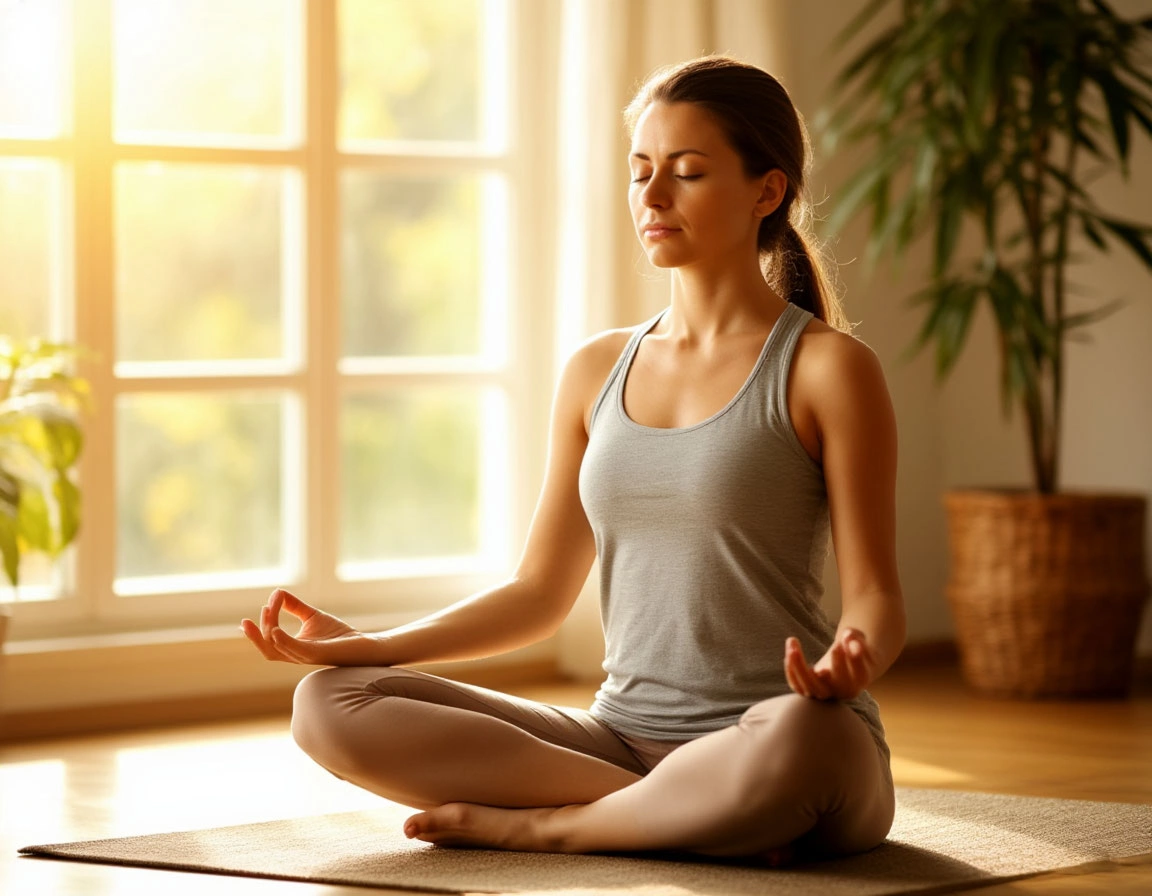
🏃 3. Exercise
Physical activity boosts endorphins, the body’s natural mood elevators. Whether it’s yoga, jogging, or a brisk walk, movement helps release tension and improve mood.
🧠 4. Cognitive Behavioral Therapy (CBT)
A proven method to reframe negative thinking patterns. If your anxiety feels overwhelming, CBT with a trained therapist is highly effective.
😴 5. Sleep and Diet
Lack of rest and poor nutrition can fuel anxiety. Aim for 7–8 hours of quality sleep, limit caffeine, and avoid heavy meals at night. Eat foods rich in:
- Magnesium (spinach, nuts)
- Omega-3 fatty acids (fish, flaxseed)
- B vitamins, especially B6 and B12
Sometimes you go through life and everything seems… normal. Mornings, work, meetings, tasks, dinner, the news, sleep. Day after day. But inside — it feels like nothing is really happening. Everything runs in the background. No taste. No presence. No real “now.” Just the endless “must.”
It’s hard to explain this state. You’re not exactly depressed. Nothing terrible has happened. But everything feels muted. You react, but don’t experience. You speak, but don’t engage. You function, but you don’t feel.This is stress too — not the sharp kind, but the kind that quietly disconnects you from yourself.
We often think anti-stress means active recovery: exercise, breathwork, strict routines, meditation. And yes — that can help. But there’s a state where what you truly need is a pause. Not another action. But space. Silence.A moment without “should.”Without “do better.”Without “just push through.”
When you’re overloaded, your body protects you — by numbing your emotional depth. It’s not laziness. It’s not apathy. It’s survival.

And in moments like that, don’t ask yourself for motivation, inspiration, or energy. Because real anti-stress isn’t about pushing forward. It’s about giving yourself time and quiet, so you can feel again.
What helps you come back?
– Doing ordinary things slowly: washing hands, eating, getting dressed– Listening to real-world sounds — not music, not noise– Slowing your breath, even just for a minute– Looking out the window without rushing– Turning off stimulation: background videos, endless scrolling, constant noise– Writing — not a gratitude list, but what’s real, raw, now– Letting yourself want nothing at all

This isn’t a quick fix. It’s not magic. It’s honesty.A quiet recognition: “I’m not tired of life — I’m tired of how long it’s been since I felt like I was really here.”
Anti-stress isn’t just about regaining energy. It’s about regaining sensitivity. Because that’s what makes us feel alive. That’s the sign we’re finally back — in this moment, in ourselves, not drifting between tasks.
And sometimes, to feel again — you don’t need effort. You need stillness.No goal.No agenda.Just space to finally hear what’s happening inside.
In today’s world, “being connected” has become the norm. Always reachable. Quick to reply. Always responsive. Checking messages even while resting. Checking email at night. Staying informed, staying involved, staying switched on.
But we’re not machines. We don’t have unlimited energy. And the constant availability we often confuse with politeness, professionalism, or responsibility — is in fact a major source of stress, anxiety, and emotional fatigue. Because you can’t truly recover when you’re always ready to respond.
Anti-stress isn’t just massages or breathing exercises. Sometimes, real anti-stress means disconnecting on a habitual level.Turning off notifications.Not answering right away.Not picking up the phone.Letting yourself be unavailable.
That’s not rude. That’s a boundary.It’s not “running away from life.” It’s reclaiming your own life.The freedom to breathe without the constant expectation that someone, somewhere, will “need” you.

Your nervous system can’t reset if your brain is always in “standby mode.” Even when nothing’s happening, your body stays on edge — because it’s expecting something to happen. This constant readiness becomes invisible stress.
If you find yourself feeling more irritable, drained by conversations, craving silence but unable to get it — maybe what you really need is to be unavailable for a while.
Here are a few gentle practices that help:
– Mute your phone for just one hour a day– Remove messaging apps from your home screen– Set specific times for checking and replying– Separate “being online” from “being available” — they’re not the same– Tell loved ones: “I’m taking quiet time. Message me — I’ll answer later.”– Create no-screen zones: mornings, dinner, one hour before bed
Anti-stress doesn’t mean isolation. It means creating inner space — where you’re not reacting, not performing, not distracted. A space where your system can breathe. A space where you’re not required to “respond.” Where you’re allowed to just be.

You don’t have to be always on.You don’t have to be endlessly accessible.Having boundaries isn’t a weakness. It’s maturity.And being unavailable — is also a form of love.A way to say: the world can wait.Right now, I choose to be with myself.
Sometimes, stress doesn’t arrive like a sudden wave — it settles in like a heavy background. You go through the motions: working, talking, eating, doing what’s expected. But inside, it feels like you’ve been carrying something too heavy, for too long. You can’t quite exhale. The things that once brought joy feel distant. Everything outside is loud — and inside, there’s a quiet emptiness.
This isn’t just tiredness. It’s inner exhaustion. And in moments like this, the answer isn’t to force yourself to “get up and go.” It’s the opposite — to let go of the idea that you must be strong right now. Anti-stress isn’t always about breathing exercises or yoga. Sometimes, it starts with the simplest, most ordinary things.
We often think relief will come from something big: a vacation, a breakthrough, a reset. But true support often begins with the small. With tiny anchors that don’t ask for energy — but gently give it.
Here’s what those anchors might look like:
– Making a cup of tea and drinking it slowly, feeling the warmth– Changing into soft, comfortable clothes– Sitting by the window, just watching the world– Calling someone you can sit in silence with– Hugging a pillow, a blanket — or yourself– Clearing a bit of space around you, not to be productive, but to breathe– Turning everything off and lying in silence– Saying out loud, “This is hard right now” — and not having to explain why
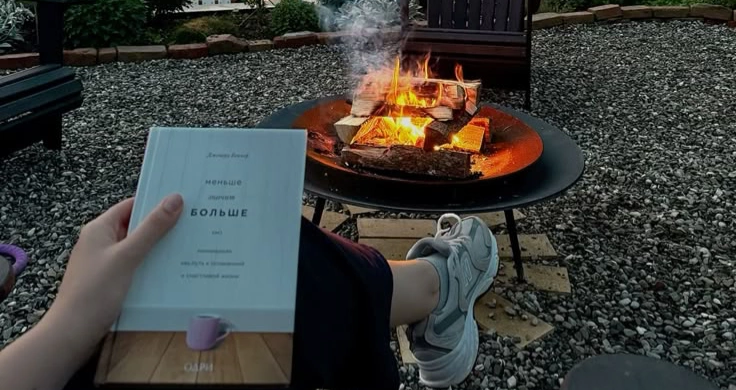
These aren’t magical solutions. They’re messages to yourself:“I’m here. I hear you. I’m not demanding anything. I’m with you.”
The nervous system doesn’t recover on command. But it responds to kindness. And the less we pressure ourselves, the faster strength returns. Sometimes we search for the way back to ourselves — through books, advice, meaning. But sometimes it begins with something simple: a warm cup of tea, and permission to just be.
Anti-stress is not a mood. It’s a mindset. Not toward the world — but toward yourself. It’s an inner voice that doesn’t say “pull it together,” but instead: “You’re not alone.” It’s a gaze that doesn’t judge. It’s a gesture that doesn’t fix — it soothes.

May each of us have something small to hold onto on heavy days — a light, a smell, a cup, a blanket.Because from those small places, we begin to return.Back to ourselves.
We live in noise. Both literal and emotional. Notifications, conversations, background music, the inner voice constantly reminding you of unfinished tasks. Even during rest, we turn something on — a series, a podcast, music — just to not “waste time.” We’ve almost forgotten how to be in silence. And yet, that’s exactly where real anti-stress begins.
Silence isn’t emptiness. It’s space. A space where you can hear yourself. Not what needs to be done — but how you’re actually feeling. In the absence of outer noise, the inner voice becomes audible. Not the inner critic. Not the planner. But that quieter voice that speaks honestly: “I’m tired,” “I’m scared,” “I need comfort,” “I don’t want to pretend anymore.”
We often treat silence as something uncomfortable. Because when we stop — everything we’ve been trying to suppress starts to surface. Emotions, fears, unprocessed thoughts. But this is also where clarity begins. Silence becomes the space where you can truly rest — without stimulation, without analysis, without comparison.
Anti-stress isn’t always about “what to add,” but often about what to remove. Sometimes, the best way to restore yourself is not doing more, but letting go of:– noise,– endless information consumption,– conversations that drain you,– plans that no longer feel like yours.

When we allow ourselves silence, it might feel strange at first. The brain craves stimulation. The hand reaches for the phone. You may feel a sense of “emptiness.” But if you stay with it just a little longer — something else arrives: relief. Soft, real, deep.
Start small:– 5 minutes of silence in the morning before checking your phone– lunch without a video in the background– a walk without headphones– one screen-free evening a week– just breathing in silence — to feel your own presence
This isn’t about restriction. It’s about choice. Choosing to leave the noise behind where it’s not needed. And reclaiming your right to pause. Because true anti-stress doesn’t come from “handling it all,” but from returning to yourself. From finding quiet within. From simply being — without roles, without tasks, without background sound.

In a world that constantly speaks, you have the right to be quiet.And in that silence — you just might heal.
We live in a world where speed has become the norm. Think fast, reply fast, work fast, even relax fast. Meditation is scheduled, silence comes through an app. We’ve learned to be efficient, multitasking, organized. But somewhere along the way, we’ve forgotten how to be truly alive — slow, present, feeling.
Stress isn’t always a sharp burst. It becomes a background noise — a steady hum of tension. We don’t even notice that we’re constantly “on”: ready to answer a message, take a call, jump to the next task. Even rest becomes a checkbox: “I need to recover,” “I should go to yoga,” “I have to disconnect.”But the key word here is “should.” Where is “want”? Where is “enough”? Where is “this feels right”?
Anti-stress isn’t a magic technique. It’s the skill of slowing down in a world that demands speed. It’s choosing to step off the track, even for an hour. Not to fall behind — but to return to your own rhythm. A rhythm where you don’t just get things done — you actually feel yourself doing them.
Sometimes, anti-stress isn’t meditation or yoga. It’s:
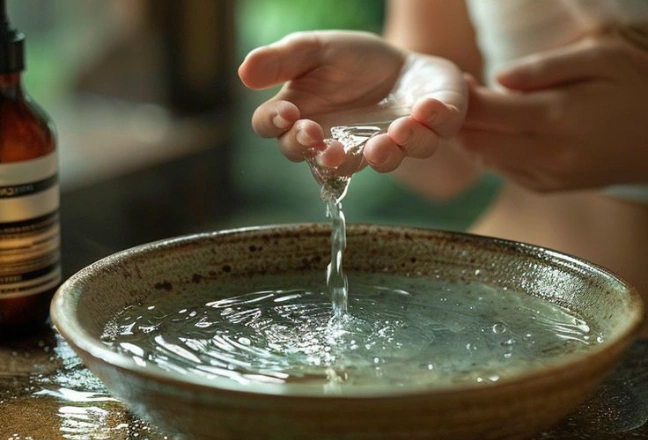
– Washing the dishes in silence– Turning off notifications– Not answering a message right away– Going to bed earlier– Breathing more deeply– Saying no to yet another course– Doing nothing for 10 minutes — and not calling it procrastination
These are radically simple things. But in a culture of constant productivity, they take courage. Because slowness is the new strength. When you’re not chasing everything — you’re choosing what matters. When you’re not hiding in busyness — you’re meeting yourself. When you allow yourself to be here and now — not rushed, not driven, not timed.
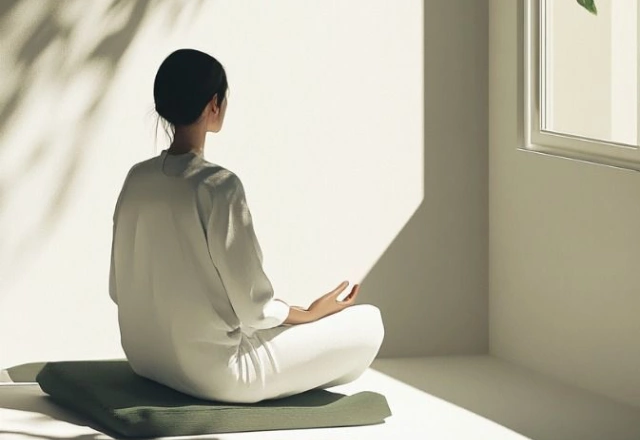
Anti-stress isn’t the absence of pressure — it’s inner stability in the face of it. It’s not cutting yourself off from the world — it’s not losing yourself in its pace. It’s asking, honestly: “Am I okay right now?” And if the answer is no — taking some small step toward feeling just a little better.
You don’t have to do it all. You don’t have to be productive, available, and “in shape” every minute. But you can learn to simply be with yourself. Not in the future, not in achievements, but right here. In a pause. In a breath. In a warm cup of tea. In your own quiet pace.
Because real life isn’t measured by how much you accomplish — but by how you feel while living it.And if you choose anti-stress — let it be not an emergency rescue, but a way of being.Not faster.But truer.
People talk about stress a lot — but usually when it’s already overwhelming. When someone feels burned out, can’t sleep, loses interest in things, gets irritated with loved ones, and struggles to concentrate. We often treat stress as something sharp and external. But the truth is, stress builds up quietly. And true anti-stress practice doesn’t start when things are bad — it starts every day, in small ways.
Emotions are like dust. You don’t always see them, but if you don’t clean regularly, it becomes hard to breathe. Emotional hygiene isn’t a luxury — or a weakness. It’s a way to protect your clarity, your warmth, and your energy. It’s inner maintenance that helps you live, not just survive.
Anti-stress begins with the habit of noticing what’s happening inside. Honestly, without judgment. Being able to say: “Yes, I feel anxious right now.” Or: “I’m tired — and that’s okay.” Or even: “I feel nothing, and maybe that’s a sign I don’t need to push — I need to pause.”
We often demand from ourselves to be focused, strong, “on top of things.” But strength doesn’t mean not feeling. True strength is in not hiding from your feelings. Giving them space. Letting yourself feel — without excuses, without rush, without shame for being human.

Anti-stress isn’t always about techniques. It’s about attitude. It’s choosing not to push yourself to the edge. It’s being willing to pause — not just physically, but mentally. It’s allowing yourself to not reply instantly, to not take on more, to not be productive 24/7. It’s about respecting your energy and your rhythm.
It helps to ask yourself simple questions:
– What am I really feeling right now?– Where do I feel it in my body?– What am I missing in this moment?– How can I give myself even a small part of that?
The answers may not be grand. Sometimes it’s just: “I want silence.” Or “I need a hug.” Or “I need to stop and look out the window for a while.” That is anti-stress — when you stop running from yourself and start getting closer.

No, we can’t erase stress from the world. But we can stop multiplying it inside ourselves. We can move through life with a little more softness, awareness, and care — toward ourselves, our bodies, our thoughts, our tiredness. We can stop trying to be perfect — and still be worthy of rest.
Anti-stress isn’t something external. It’s an inner position:“I choose to be with myself, not against myself.”“I allow myself to rest.”“I don’t have to be strong all the time to be valuable.”
And from that place, energy returns. Clarity returns. Even joy can return. Because when you’re finally on your own side — there’s nothing more to prove.You exist. And that — is enough.